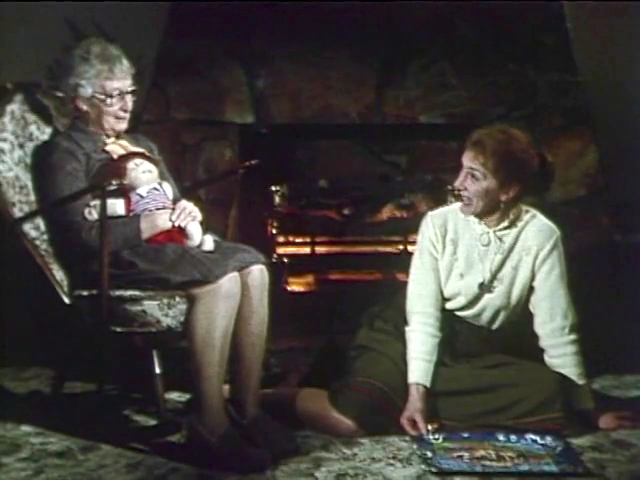1980s
“Purr Francine! Purr, purr Francine!”Polyester (John Waters, 1981)
Nov
10
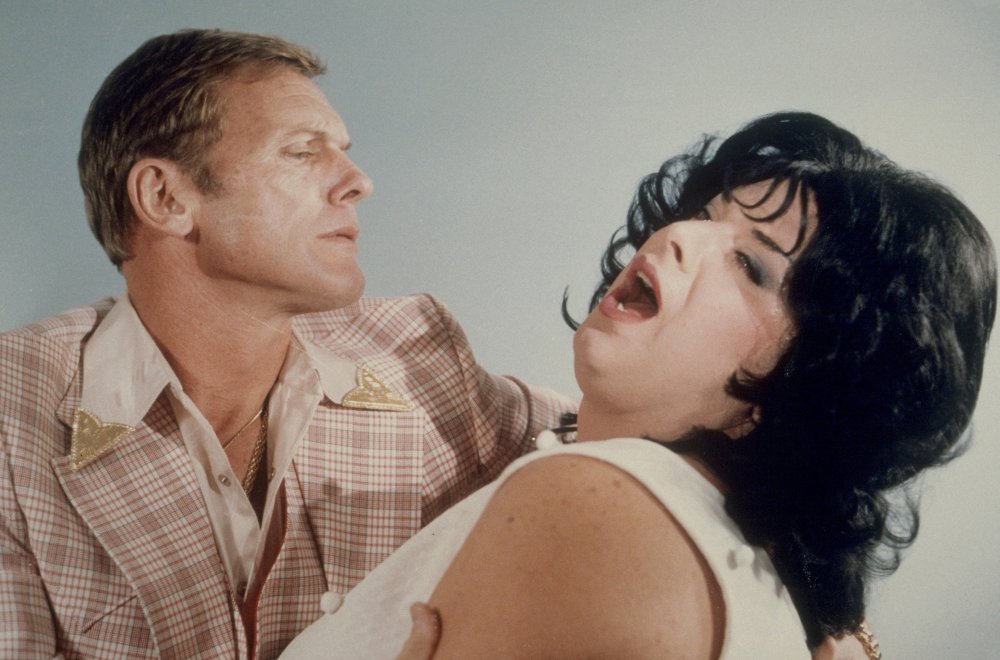
Todd Tomorrow (Tab Hunter) and Francine Fishpaw (Divine) in wild ecstasy. The scene appears to evoke a moment of passion between Chris Flanders (Richard Burton) and Flora Goforth (Elizabeth Taylor) in Boom! (Joseph Losey, 1968). DP: Dave Insley.
– Cuddles Kovinsky
“Oh keiner macht's wie du,
Wie du so traut sich's keiner,
So wie du”Das Gold der Liebe [The Gold of Love] (Eckhart Schmidt, 1983)
Nov
9
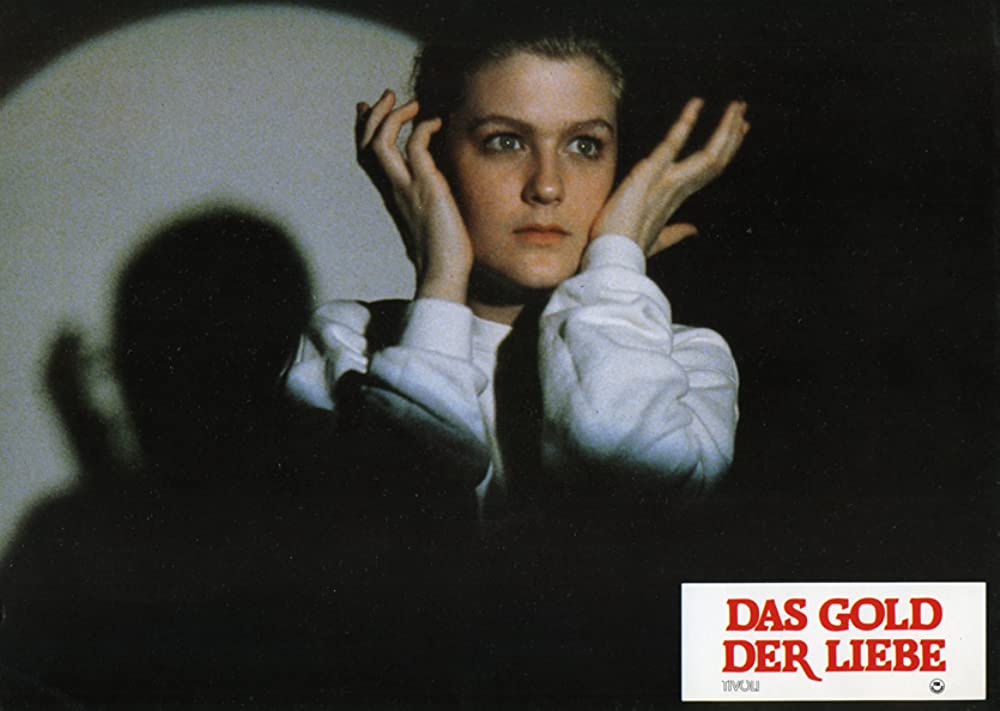
DAF-fan Patricia (Alexandra Curtis). DP: Bernd Heinl.
– DAF – El Que (Gold und Liebe (1981)
– You surely know that my financial support is unlimited. – Yes. Long live your false cheque factories!Tajemství hradu v Karpatech [The Mysterious Castle in the Carpathians] (Oldřich Lipský, 1981)
Oct
27
1897

A calendar – undeniably designed by the great Jan Švankmajer – with the date October 27, 1897, set on the day of – or referencing a saint – Sabina. Screenshot via DVDBeaver. DP: Viktor Růžička.
“My whole idea behind this in the first place was to see how dumb America was. How dumb the world is.”Psychic Confession (Danny Korem, 1982)
Oct
23

James Hydrick spins a one dollar bill – balanced on top of a pin, locked into an airtight, glass box – with the power of his own mind.
– James Hydrick
Könnyű testi sértés [Tight Quarters] (György Szomjas, 1983)
Oct
16

Csaba (Károly Eperjes) and Miklós (Péter Andorai) in their reluctantly shared apartment. Every frame is claustrophobically filled with people, including the television. DP: Ferenc Grunwalsky.
“One can meet only god at such hour.”駅 [Eki / Station] (Yasuo Furuhata, 1981)
Oct
12

Eiji Mikami (Ken Takakura) and Kiriko (Chieko Baishō) watching TV in her quiet bar. She sings along with her favourite song. DP: Daisaku Kimura.
Set 278 days before the start of the Tokyo Olympics.
Medium (Jacek Koprowicz, 1985)
Oct
2

A man in an impeccable, light-colored suit. His nose is bleeding. DPs: Jerzy Zieliński & Wit Dąbal.
“There are no ghosts in daylight. You'll get used to our nights at Diodati. A little indulgence to heighten our existence on this miserable Earth. Nights of the mind, the imagination. Nothing more.”Gothic (Ken Russel, 1986)
Oct
1
Frankenstein
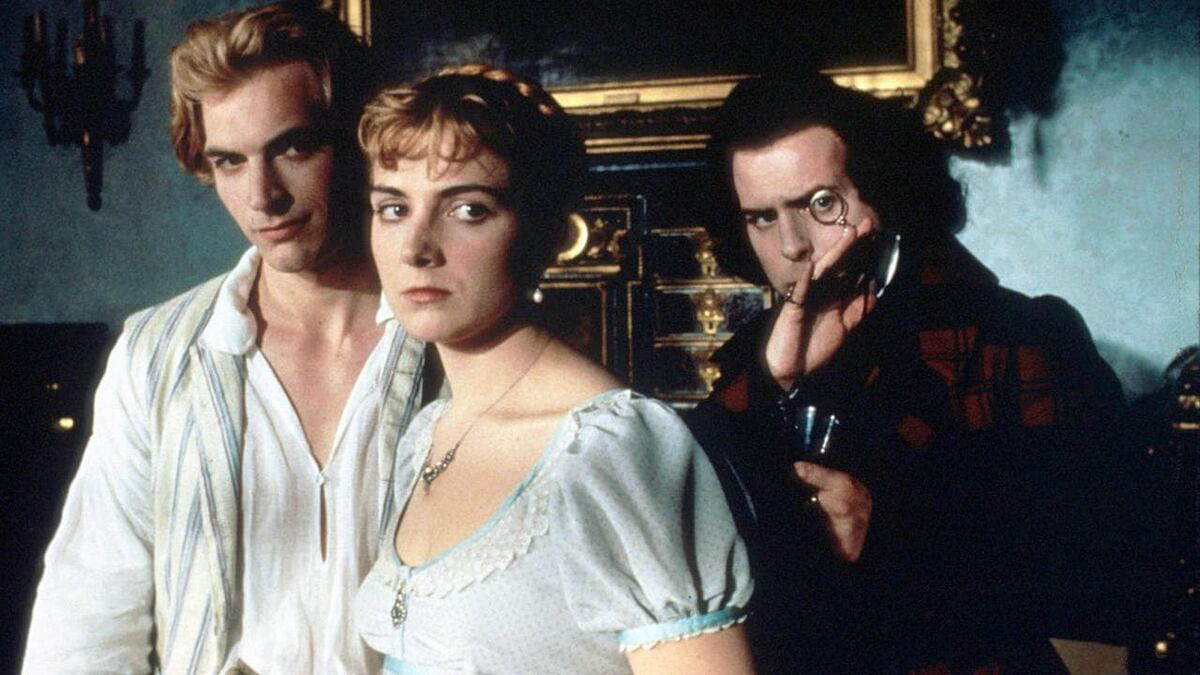
Percy Shelley (Gabriel Byrne), Mary Shelley (Natasha Richardson) and Dr Polidori (a deliriously delicious Timothy Spall). DP: Mike Southon.
A [favourite] Frankenstein film.
One wet, ungenial summer in 1816, lovers Mary Godwin and Percy Shelley, and Mary's stepsister Claire Clairmont, visited a dear friend at Villa Diodati. That friend was Lord Byron, exiled and residing in the Swiss villa with his physician Dr John Polidori
– Lord Byron
Forced indoors, over the cause of three days they turned to the occult, to laudanum, to stories from the Fantasmagoriana, and the horrors of their own. That summer, Frankenstein saw the light of day.
The Devil at Your Heels (Robert Fortier, 1981)
Sep
25
1976
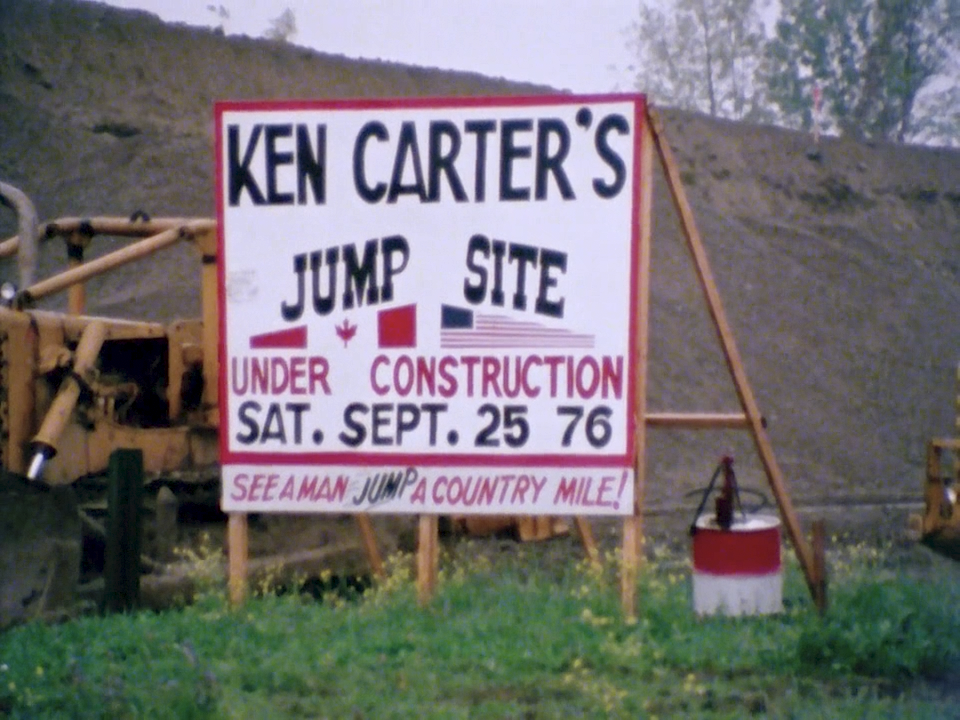
The location of the jump site, marked with a hand painted billboard: KEN CARTER'S JUMP SITE UNDER CONSTRUCTION SAT. SEPT. 25 76 SEE A MAN JUMP A COUNTRY MILE! DP: Barry Perles.
